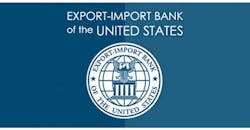Increasing a manufacturing company’s exporting business not only results in added revenue but it also can create jobs in the U.S.
The Export-Import Bank of the United States (EXIM), a government agency, provides a variety of resources to large, medium and small businesses to help them either begin or expand exporting. Services offered by the agency include locating brokers and working capital lenders as well as managing claims and assets.
In the case of Honda Aircraft Co., located in Greensboro, N.C, EXIM created an innovative financing facility to support multiple exports of U.S.-made HondaJet business aircraft.
Under the $5 million, short-term revolving facility, EXIM is serving as the guarantor of “floor planning” credit being extended by Apple Bank for Savings in New York. During a one-year availability period, the financing will support the exports of several HondaJet HA-420 aircraft to HondaJet’s exclusive distributor in Mexico, Grupo Avemex S.A. de C.V.
“We are appreciative of EXIM's support of the HondaJet and U.S. manufacturing,” said. Honda Aircraft CEO Michimasa Fujino said. “We are confident this collaboration will contribute to the success of the HondaJet internationally and will strengthen Honda Aircraft Company's manufacturing jobs in the United States.”
Another company DemeTECH, a Florida manufacturer of surgical sutures and blades, is also reaping the benefit of assistance from EXIM. The company was able to expand its business to more than 100 countries, which resulted in revenue growth of over 400%
Working EXIM, DemeTECH was able to offer open account credit terms to foreign buyers, while at the same time protecting itself from buyer nonpayment with an export credit insurance policy.
“We have expanded our distribution worldwide, thanks in large part to EXIM Bank's multi-buyer insurance,” said. Luis Arguello, Sr., CEO. “The ability to extend credit to buyers is key to our astronomical growth.”
The company did not always sell its sutures and blades internationally. Before partnering with EXIM, sales were flat and overseas orders were small. DemeTECH was unable to provide credit to its international clients, preventing it from procuring large orders, and the company’s clients did business with other exporters. It was back in the early 2000s when faced with the hurdles of growing his business, when Arguello, first turned to EXIM for assistance in accessing business financing.
EXIM introduced DemeTECH to export credit insurance to cover its foreign accounts receivable. As a result, DemeTECH started offering more flexible credit terms to its international customers, allowing them to make payments over a longer period of time for DemeTECH’s goods. The company was able to improve its ability to offer international clients credit and secure larger orders essential for growth.
Today, 80% of its revenue comes from exports to international markets in the Middle East, Europe, Asia and Australia. And more than 60% of DemeTECH employees are working today to fill orders supported by EXIM.
For companies who are currently not exporting the agency offers five reasons as to why they should:
- Increase your overall sales and profits with a larger market size. 95% of the world’s population lives outside the United States.
- Reduce your total reliance on a single domestic market.
- Reduce available excess inventory or excess production capacity.
- Exporting can be lucrative for businesses of all sizes. On average, sales grow faster, more jobs are created, and employees earn more than in non-exporting firms.
- You may have a comparative advantage because the United States is known throughout the world for innovative goods and services, high-quality customer service, and sound business practices.
This type of advice and discussions on a variety of topics related to exporting will be explored at the agency's annual conference March 28, 29 in Washington D.C. The theme of the conference is “Exports: Connecting Trade with U.S. Security and Prosperity.” Speakers include:
Dr. Peter Navarro, Assistant to the President and Director of the Office of Trade and Manufacturing Policy
John G. Rice, Chairman, GE Gas Power
Dr. Rebecca Harding, CEO,Coriolis Technologies
Robert G. Gwin, President, Anadarko Petroleum Corp.
For more information and to register, click here.
